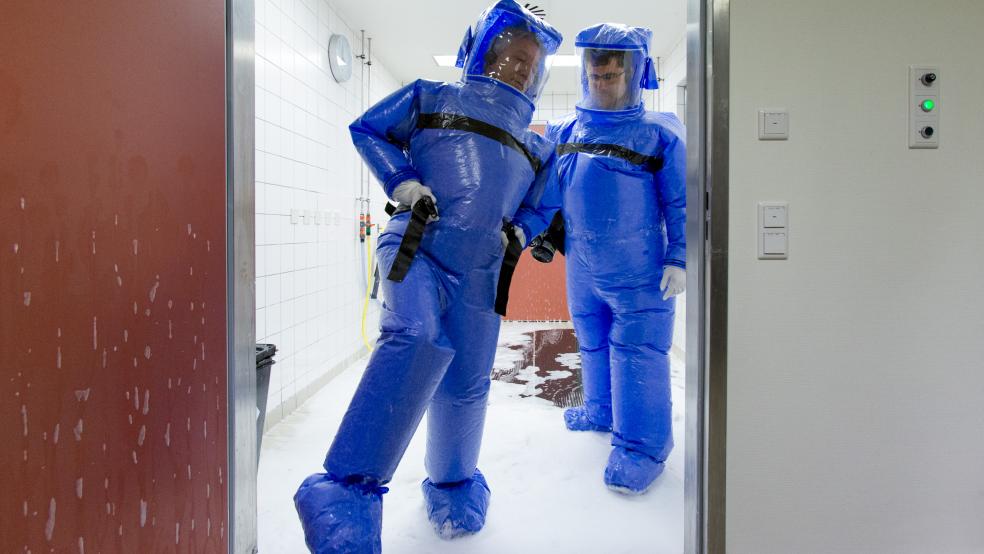Scientists across the world are scrambling to develop an Ebola vaccine to quell the deadly outbreak in West Africa, but the top scientist at the National Institutes of Health says his agency would likely have one by now if it weren’t for the steep budget cuts imposed by Congress.
In an interview with the Huffington Post, Dr. Francis Collins said, "Frankly, if we had not gone through our 10-year slide in research support, we probably would have had a vaccine in time for this that would've gone through clinical trials and would have been ready."
Related: How Other Countries Are Preparing to Stop Ebola
Collins said that NIH scientists have been working toward an Ebola vaccine since at least 2001, but a steady decline in spending has significantly set back their research. They plan to begin clinical trials on a vaccine by December—but results won’t be known until March or April. Collins predicted that had the agency received sufficient funding, scientists would likely be one or two years ahead of where they are now.
“It's not like we suddenly woke up and thought, 'Oh my gosh, we should have something ready here,'” Collins said, adding that now "we’re on a slower track than would've been ideal, or that would have happened if we had been on a stable research support trajectory."
NIH’s budget has taken a significant hit over the last decade, shrinking by about $5 billion adjusting for inflation. And the National Institute of Allergy and Infectious Diseases within NIH saw its budget drop by $50 million between 2004 and 2013.
The NIH chief and others have urged Congress to pass an emergency funding bill. Last month, Reps. Rosa DeLauro (D-CT) and Brian Higgins (D-NY) introduced a measure that would increase NIH budget caps to $46.2 billion in 2021, The Washington Post noted. But it doesn’t appear to be gaining traction yet.
Related: Protocol Breach Led to Second U.S. Ebola Case
For now, the agency has had to "take dollars that would have gone to something else, and redirect them” to the Ebola fight, Collins said.
The NIH chief’s comments come just one day after the Centers for Disease and Control confirmed the second patient to be diagnosed with Ebola in the United States. CDC reported a health worker who had helped treat the U.S.’s first Ebola patient, Thomas Eric Duncan, had tested positive for the deadly virus. CDC Director Dr. Thomas Frieden said the health worker contracted the virus because of a breach in protocol.
Officials said the health care worker, who has not been identified, is in stable condition. This is the first patient to contract the disease on U.S. soil. Officials have ramped up efforts over the last week to prevent an outbreak in the United States. Five major airports - Dulles in Washington, D.C., JFK in New York, Newark’s Liberty, Chicago’s O’Hare, and Hartsfield-Jackson in Atlanta - are screening passengers from West Africa who may be infected with the virus.
So far, Ebola has killed more than 4,000 people – mostly in the West African countries of Liberia, Sierra Leone and Guinea.
Top Reads from The Fiscal Times:





